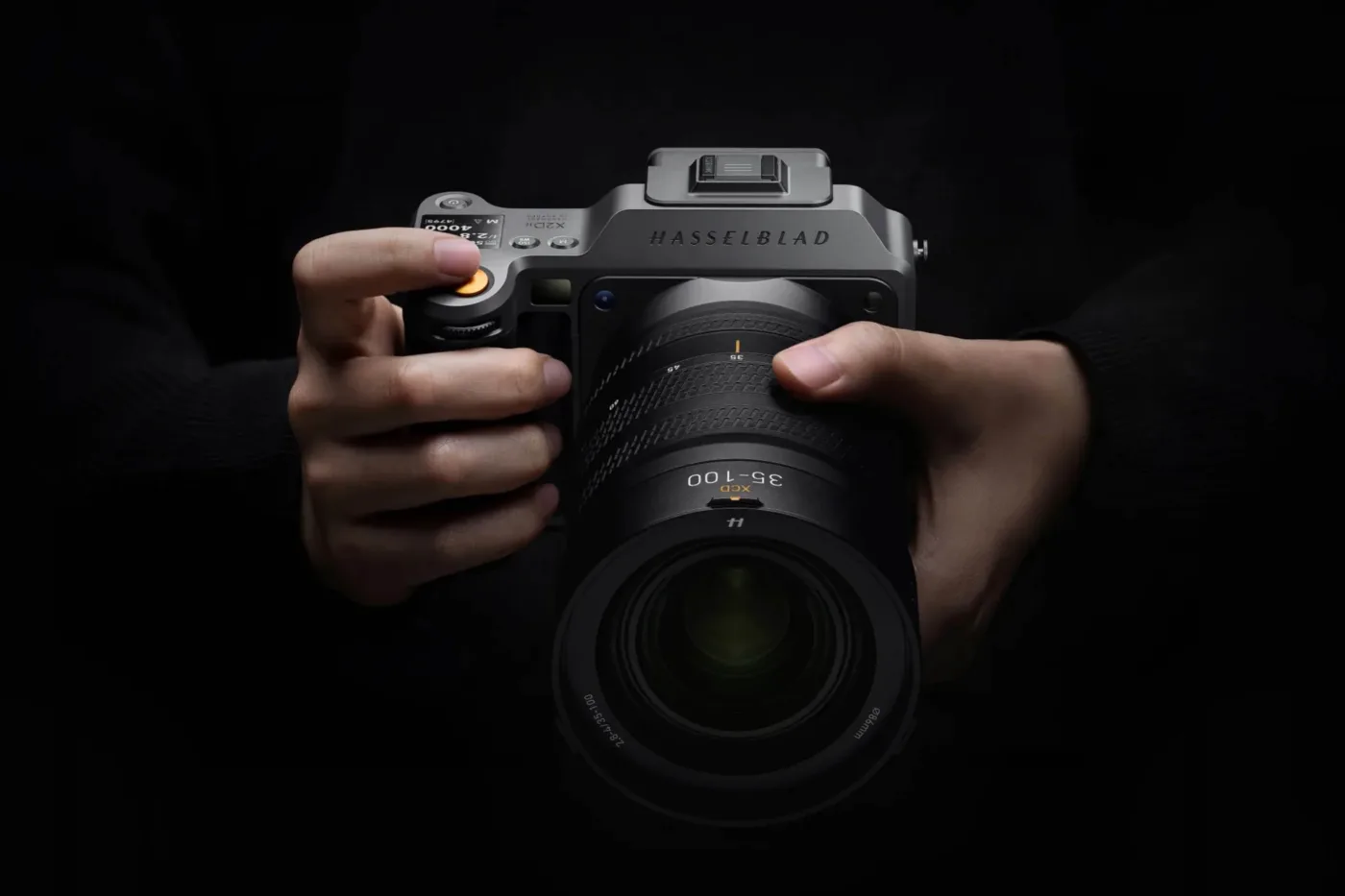Imagine a camera that once captured the first steps on the moon, now tackling the everyday world in HDR glory. The Hasselblad X2D II 100C isn't just a museum piece – it's a quiet luxury for photographers who want 100 million pixels without the drama. With improved autofocus that follows like a loyal dog and stabilization that would make even James Bond jealous, this Swedish gem promises images that breathe life. But no video, please – this is a purist's paradise.
Let's start with a slightly cynical smile: in a world where every phone thinks it's a camera, it comes Hasselblad X2D II 100C an elegant reminder that true art requires little more than a filter. This medium-format beauty, freshly unveiled a few days ago, upgrades its predecessor with modern tricks that make it accessible even to those of us who aren't all professional lunar explorers. It's like a vintage car with an electric motor - classic, but ready for the future.
Key figures at a glance: Hasselblad X2D II 100C
– Sensor: 100 MP BSI CMOS (43.8 × 32.9 mm), 16-bit capture, up to 15.3 EV dynamic range.
– HDR capture: End-to-end HDR in HEIF or Ultra HDR JPEG, with support for HDR displays.
– Autofocus: AF-C with 425 PDAF points, LiDAR assistance, human, animal and vehicle detection.
– Stabilization: 5-axis IBIS, up to 10 EV (center of frame), 8 EV at edges.
– Display: 3.6-inch OLED, 1400 nits peak brightness, P3 color space.
– EVF: 5.76 million dots Micro-OLED.
– Storage: Built-in 1 TB SSD (up to 2370 MB/s write), plus CFexpress Type B.
– Speed: Up to 3 fps, leaf shutter up to 1/4000 s for flash.
– Weight: At 840g with battery (730g body), the % is 7.5 times lighter than its predecessor.
– Price: From 7200 EUR for a body in the EU.
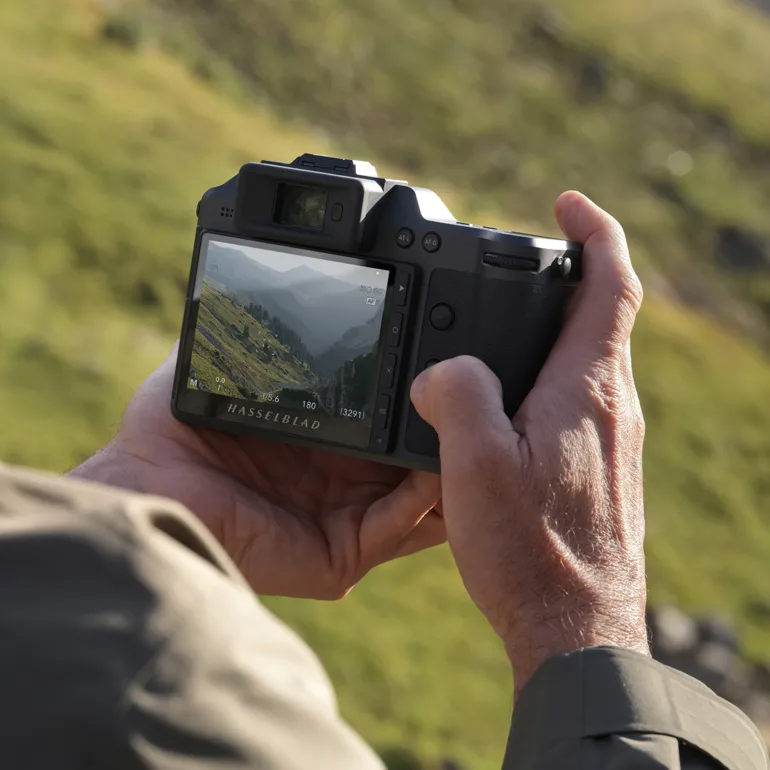
A look into the heart: sensor and HDR magic
The Hasselblad X2D II 100C has a sensor that’s bigger than your average selfie – a 43.8 x 32.9 mm BSI CMOS with 100 million pixels. That means 16-bit color capture, producing over 281 trillion shades, and a dynamic range of up to 15.3 EV. It’s as if the camera is seeing the world through the eyes of an eagle, without those annoying burnt whites or black shadows. What’s new is end-to-end HDR: the camera captures, processes, and displays HDR images directly, without the need for any computational alchemy. The result? Ultra HDR JPEGs with a “gain map” layer that tells HDR displays where to boost brightness – while SDR devices see a regular shot. It’s like a smart thermostat for lighting: precise but unobtrusive.
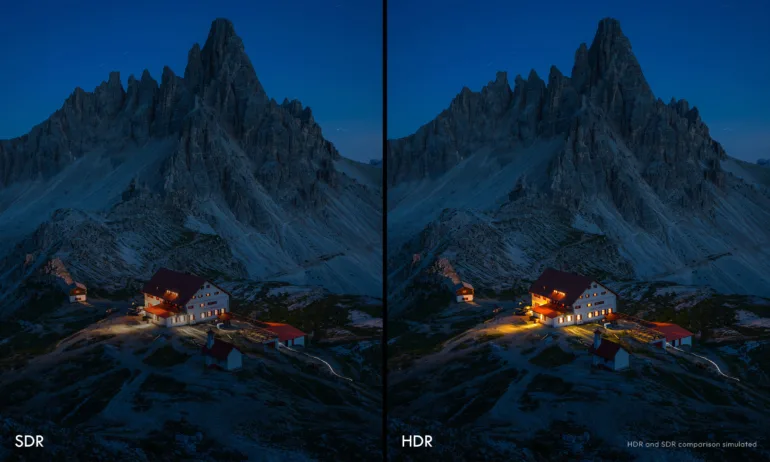
Autofocus and LiDAR: the ultimate drama-free tracking
For a long time, medium format cameras were like lazy cats – beautiful but slow to catch. The X2D II 100C changes that with AF-C (continuous autofocus) that tracks movement with deep learning: it recognizes people, cats, dogs and vehicles. Add 425 PDAF points and LiDAR assist (in AF-S mode), and you get faster focusing, especially in the dark. It’s not a sports beast, but for portraits or street photography it’s a reliable companion. And the haptics? The camera vibrates when it locks focus or levels the horizon – a little thing that saves you from shaky hands.
Stabilization: 10 levels that overcome shake
This is where Hasselblad really shines: the 5-axis stabilization offers up to 10 EV in the center of the frame (8 EV at the edges, according to CIPA standards with the XCD 120 Macro). That's more than competitors like Fujifilm GFX 100 II (8 EV), meaning you can capture multi-second exposures handheld. It's as if the camera had a built-in tripod - ideal for landscapes or architecture where shake can ruin detail. A little humorous: if you've ever tried to hold a cup of coffee without spilling, you know why this is worth its weight in gold.
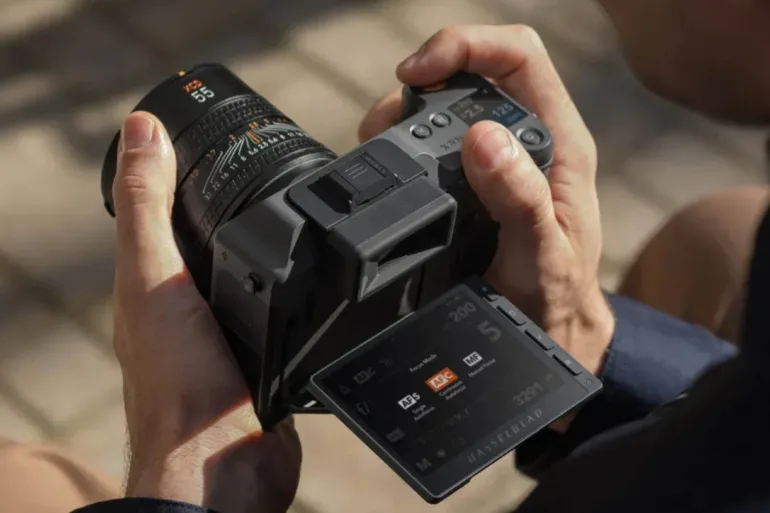
Housing and technology: ergonomics with a touch of luxury
The body is 7.5 % lighter, with a 5D joystick and eight programmable buttons for quick control. The screen tilts up 90° and down 43°, and the EVF is crystal clear. Phocus Mobile 2 allows for RAW HDR editing on iOS devices, even remote power on. Safety? Hasselblad doesn't list a Euro NCAP equivalent, but the sensor is rugged for -40°C to 125°C. OTA updates and a warranty are standard, but check with your retailer for details.
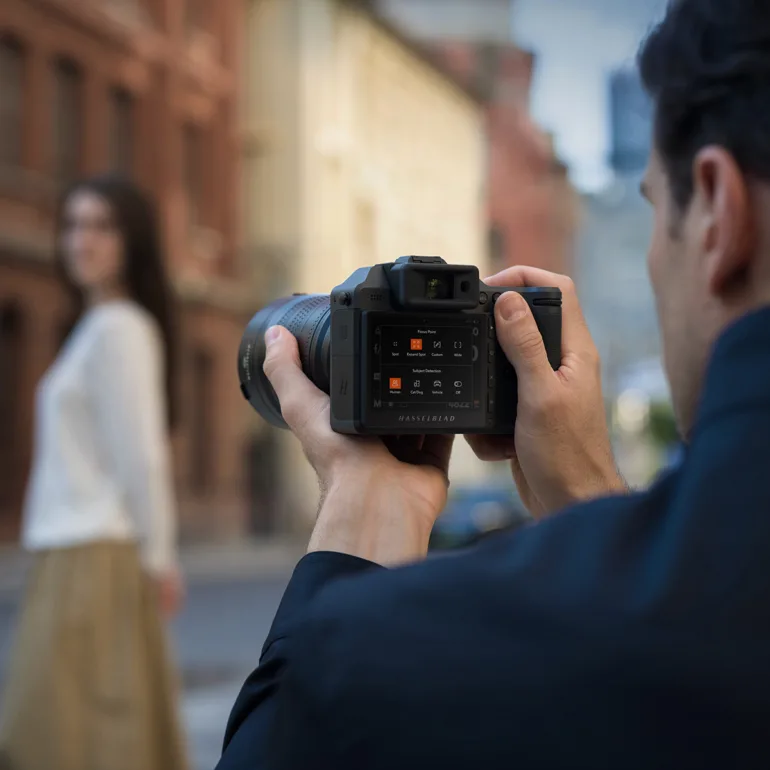
Consumption and costs: no fuel, but energy for files
No video – and that’s intentional, Hasselblad says. The battery lasts a day of shooting, but the huge 100MP files require a 1TB SSD. Cost? Starting price €7,200 in the EU, down from its predecessor (€8,699). Service and warranty: Standard 2-year, with the option to extend. TCO (total cost of ownership) is high for hobbyists, but for pro users it pays off with top-notch files.
Model Heritage: From the Moon to HDR
Hasselblad launched a lunar mission Apollo, and the X series brings the digital revolution. The X2D II upgrades the X2D 100C with AF-C, HDR and better stabilization – a generation that makes medium format “more user-friendly”. The Hasselblad X2D II 100C is not for everyone – it’s like fine dining in a fast food world. Slightly cynical: in a time when everyone thinks they’re photographers, this camera is a reminder that details matter. But positive: every shot is a work of art, thanks to an HDR chain that preserves natural tones without exaggeration. For portraitists, landscapers or architects, this is a worthwhile investment – 7200 EUR for quiet luxury that lasts. If you're a purist looking for pure stills without video, this is your next step. For hybrid users, maybe the GFX. In any case, this Swedish gem proves that every camera, even medium format, can find its plus: here it's uncompromising quality that makes you a better photographer. Accessible to everyone? Yes, if you have patience and an eye for detail - like a good driving instructor, it guides you without preaching.



